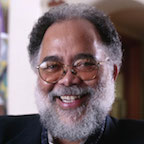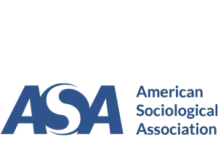 A new study led by John Rickford, the J.E. Wallace Sterling Professor in the Humanities and a professor of linguistics at Stanford University, examines the use of African American vernacular English (AAVE) by young Blacks depending on the economics characteristics of their neighborhoods.
A new study led by John Rickford, the J.E. Wallace Sterling Professor in the Humanities and a professor of linguistics at Stanford University, examines the use of African American vernacular English (AAVE) by young Blacks depending on the economics characteristics of their neighborhoods.
Dr. Rickford says the use of AAVE is important for self-expression, and for marking group identity and solidarity. But he notes that the use of AAVE can also trigger discrimination in the workplace, housing market, schools, and courts. “Language is in many respects a socially constructed behavior, jointly influenced by exposure, identity and peer group influence. One’s speech patterns are shaped not only by one’s family, but also by one’s broader regional and social environment,” writes Professor Rickford.
Researchers examined the speech patterns of participants in the Moving to Opportunity for Fair Housing experimental program, a federal government project aimed at helping very-low-income families move from poverty-stricken urban areas to low-poverty neighborhoods with the help of vouchers. Participants in five U.S. cities (Baltimore, Boston, Chicago, Los Angeles and New York) were randomly assigned between 1994 and 1998 either to an experimental group that received vouchers to move to low-poverty neighborhoods or to a control group that did not.
The researchers found that, on average, people from the control group – who were not given vouchers to move to low-poverty housing – used African American Vernacular English about 48.5 percent of the time. This number was about 3 percentage points lower for people from the experimental housing voucher group, a modest but statistically significant drop, demonstrating the impact of socio-economic environment on linguistic versatility, Professor Rickford said.
A native of Guyana, Professor Rickford is a graduate of the University of California, Santa Cruz. He holds a master’s degree and a Ph.D. in linguistics from the University of Pennsylvania.
The study, “Neighborhood Effects on Use of African-American Vernacular English,” was published on the website of the Proceedings of the National Academy of Sciences. It may be accessed here.












Dr. Rickford,
With all due respect, your research merely solidifies the racist notions that many Whites within academia (K-PhD) have about native born Black students ability to master “White American Vernacular English (WAVE). There’s nothing new about your research in my view. In fact, one’s mastery of WAVE is not based upon one’s ethnicity but socialization and intellectual exposure. Further, I can as easily make similar claims about White American students haling from the bayous of Louisiana or the rural Appalachian mountains. It appears to me that your research is indicative of having been exposed to the British (colonial) education system.
In lieu of that, I am most certain that you have been asked to repeat yourself by many of your White colleagues (i.e., Stanford or at academic conferences) because of your own speech patterns. I know Dr. John McWhorter is enjoyed your study because he’s ideologically your academic twin.